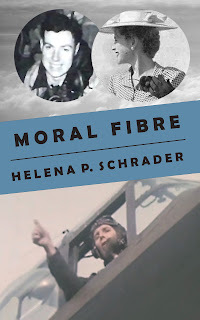CHARACTERS OF "COLD PEACE" -- MEET "KIWI" MURPHY
No character in "Cold Peace" captures the situation of many veterans in the post-war era better than Kiwi. After six years in the RAF and a credible war record, he finds himself floundering. Demobilized into an economy that is struggling, the only job Kiwi can find is as a salesman. He isn't good at it and soon he's not only struggling to make ends meet, his wife has left him as well. He increasingly turns to drink.
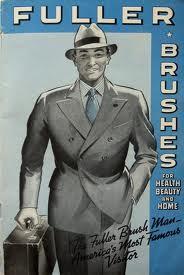
Excerpt 1:
Kiwiwas discouraged but knew that much of his glum mood stemmed from the disastrousweekend he’d just put behind him. The weekends tended to leave him feelinglonely and full of regrets about losing Betty, but this past one had beenparticularly rocky. He’d asked Betty to meet with him for lunch, hoping hecould show her he was on a new path. When she refused, he’d pleaded with her,and she’d become angry and insulting. He’d answered in kind, and it turned intoa shouting match until she hung up on him. How had it come to this? They hadbeen so in love in 1944…
Theengine started coughing, and having crested the hill, Kiwi disengaged the gearsand coasted. It was like gliding a Spit in after the engine stalled, he toldhimself. Luckily, he could see the petrol station at the foot of the hill.Unluckily, it was on the other side of the road, and there was oncomingtraffic. If he had to put on the brakes, he’d never be able to roll into thestation.
Concentratingand talking to the car at the same time, he judged the distance, his speed, andthe speed of the approaching lorry. Just when he thought he was going to beable to turn in after it had passed, it slowed down. Kiwi had to slam on hisbrakes, and he came to a halt in the middle of the road, while the lorrycontinued obliviously on its way.
Trafficconverged on Kiwi from both directions. Cursing colourfully, Kiwi tried torestart the engine, causing a bang followed by ominous hissing. The cars oneither side of him started hooting their horns. Idiots! Surely, they could seehe was dead in the water? One of the drivers started inching cautiously pasthis stern, but the other stuck his head out of the window to shout rude thingsat him.
Kiwiclimbed out of his car and started pushing it off the road. He was relievedwhen a young man from the petrol station darted out to help him. The stationattendant pointed to a garage behind the filling station, and they pushed thecar in there. After putting on the brake, they looked under the hood togetherand Kiwi explained what he’d done and heard. As the young mechanic tinkeredwith this, that and the other, they chatted. The rapport between them wasinstantaneous, and in no time, Kiwi had his hands dirty as he helped.
Theywere so absorbed in their task, that neither of them took any notice of a carhooting behind them until a fat man came storming over shouting. “WOODWARD!What do you think I’m paying you for? Get out there and pump petrol!”
Toolate, the helpful young man realised three cars were in line for petrol.Apologizing profusely to his boss, he rushed out to do his job, while Kiwiwaited, feeling guilty for distracting him. After the customers had drivenaway, the young employee returned and remarked in a low voice, “If you give me anotherhalf hour, I think I can get her fixed up enough for you to get to Petersfieldon your own power. The problem is the cylinder head gasket, and you’ll need toget it taken off and reskinned at a proper garage.”
“Thanks,mate, but I’d hate to get you in more trouble.”
Theattendant shrugged. “If it hadn’t been you, it would have been something else.Mr Babbit doesn’t think I’m worth the time of day let alone a shilling an hour!As he never tires of telling me, he only hired me as a favour to his sister,who happens to be my sister’s mother-in-law.” He shook his head in a gesture ofapparent helplessness. “Problemis,” he explained, “I’ve got no formal training on automobiles, and Babbitthinks a ‘Merlin’ is a mythical wizard rather than a wizard machine.” He cast adisgusted look in the direction of the station office.
Kiwilaughed. “Fitter?”
“That’sright. You with the mob, too?” Chips asked hopefully.
Kiwi nodded. “Best years of my life, buttime goes on."
Kiwi is a New Zealander who fell in love with flying as a boy, scraped his pennies together to learn how to fly and then made a living (of sorts) flying any job he could find -- in flying circuses, barn-storming, crop-dusting, fire-fighting, instructing, and offering joy-rides to paying customers. He didn't earn much, lived rough but was happy. Then the war came and a sense of patriotism combined with the desire to fly modern aircraft induced him to pay his own way to England and volunteer for the RAF.
Given a short service commission, trained on Spitfires and sent to Fighter Command, Kiwi gets his baptism of fire in the Battle of Britain. He is once shot down over France but evades capture and returns to fly and fight again. By the end of the war he is a Squadron Leader and a decorated hero. But his service commission expires with the end of the emergency and he finds himself looking for work in "civvy street" just like tens of thousands of others. The only work he can find is as a salesman, and fails miserably. Misery leads to excessive drinking which adds to friction with his wife, and by late 1947 she has left him. That's when he encounters David Goldman, a friend since 1940, and David gives him the chance to join his fledgling air ambulance company.
Kiwi isn't a freeloader. He brings important skills in the cockpit and on the ground. David really couldn't succeed without him, but that doesn't mean they don't have their differences -- and Kiwi's demons haven't entirely released him....
Excerpt 2:
Sunlight penetrated the room and Kiwi groaned. Hishead was throbbing, his mouth dry, and he needed to pee. But when he rolledover to get out of bed, he bumped into something. There was someone else in hisbed. Oh, God! Where did she come from? The pub, of course; drinking with Chipsand Ron. They’d chatted up those girls — well, not really girls anymore, Kiwireflected as he eased out from under the covers without waking up his bedmate.
By the cold light of dawn with most of her make-up on thepillowcase, she looked older than he was. Her heavy breasts sagged shapelesslyto either side, but her belly swelled up in two thick rolls. She lay on herback, her mouth hanging open, and she snored softly. She looked forty if shewas a day, but who knew? Too many late nights, too many cigarettes, too muchalcohol, too many lost friends and too many disappointments had left them alllooking older than their age. Did anyone look “their” age anymore?
Kiwi stumbled over the cold floor to the bathroom,embarrassed to realise he was as naked as the woman in his bed. Their clothingwas littered on the floor in a messy heap all mixed up together. He vaguelyremembered the excitement of it, but the call of nature allowed no lingering.
He slipped into the bathroom and his reflection in themirror made him groan. He looked an absolute wreck. God, he had to stopdrinking like that. He couldn’t handle it anymore — or the consequences. Howthe hell was he going to get rid of her? And what on earth was her name? Not tomention that his head was killing him!
After relieving himself, he turned on the tap andfilled the basin with cold water. He leaned over, dipped his hands in the waterand threw it at his face. He had the feeling he’d forgotten something — besidesthe name of the woman in his bed. What day of the week was it? What was hesupposed to be doing?
Jesus Christ! He stood up so abruptly that he almostblacked out and had to clutch the washbasin to stop himself from losing hisbalance altogether. It was Friday! He was scheduled for his flight test today!At 9:30 am. What time was it?
Jesus! Jesus! He ran out of the bathroom and startedfrantically searching for his watch. Where had he put it? His hasty search madethe stranger in his bed turn over with a little moan, but Kiwi didn’t care. Hehad to find out what time it was. Finally, he spotted his watch lying atop thechest of drawers. 8:35!
No, no! He couldn’t be late! His future depended onpassing the qualifying exam on twin-engine aircraft. If he couldn’t get hiscertificate for twins, he couldn’t fly the Wellington, and he was no use toBanks, and he’d be tossed out of the company on his ear. Jesus! Jesus! Thefirst objects he could put his hands on were his socks and he pulled one onafter the other, then his undershorts and finally a pair of trousers.
The woman on the bed made a sound like she was awake.
Cold Peace is Book I of the Bridge to Tomorrow Series.
Three years after WWII, Europe struggles with rationing, widespread unemployment and a growing Soviet threat. Hitler's former capital lies ruined under the joint control of wartime allies bitterly at odds. With the currency worthless, the population lives on hand-outs or turns to crime and prostitution. Deep inside the Soviet Zone of occupation, Berlin appears to be an ideal target for a communist take-over, putting the defenders of democracy on a collision course with Stalin's merciless aggression.
A Battle of Britain ace, a female air traffic controller, a concentration camp survivor and an ex-ATA woman pilot are just some of those trying to find their place in the post-war world. An air ambulance service offers a shimmer of hope, but when a Soviet fighter brings down a British passenger liner, Berlin becomes a flashpoint. The world stands poised on the brink of World War Three.
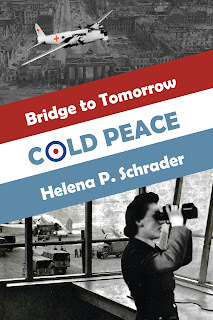
Find out more at: https://www.helenapschrader.com/bridg...
Previous releases include:
" MORAL FIBRE," which WON THE HEMINGWAY AWARD 2022 FOR 20TH CENTURY WARTIME FICTION and a MAINCREST MEDIA AWARD FOR MILITARY FICTION as well as being A FINALIST FOR THE BOOK EXCELLENCE AWARD 2023 IN THE CATEGORY HISTORICAL FICTION.
Riding the icy, moonlit sky,they took the war to Hitler.
Their chances of survival were less than fifty percent.
Their average age was 21.
This is the story of just one bomber pilot, his crew and the woman he loved.
It is intended as a tribute to them all.
or Barnes and Noble.
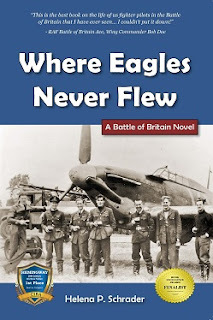 "This is the best book on the life of us fighter pilots in the Battle of Britain that I have ever seen.... I couldn't put it down."-- RAF Battle of Britain ace, Wing Commander Bob Doe.
"This is the best book on the life of us fighter pilots in the Battle of Britain that I have ever seen.... I couldn't put it down."-- RAF Battle of Britain ace, Wing Commander Bob Doe.
Winner of a Hemingway Award for 20th Century Wartime Fiction, a Maincrest Media Award for Military Fiction and Silver in the Global Book Awards.
Find out more at: https://crossseaspress.com/where-eagles-never-flew
For more information about all my books visit: https://www.helenapschrader.com
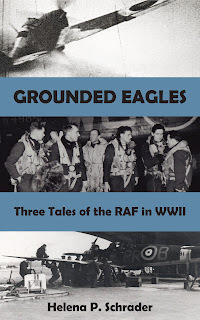 Disfiguring injuries, class prejudice and PTSD are the focus of three tales set in WWII by award-winning novelist Helena P. Schrader. Find out more at: https://crossseaspress.com/grounded-eagles
Disfiguring injuries, class prejudice and PTSD are the focus of three tales set in WWII by award-winning novelist Helena P. Schrader. Find out more at: https://crossseaspress.com/grounded-eagles

